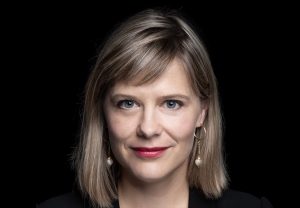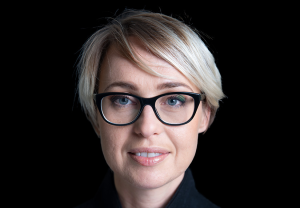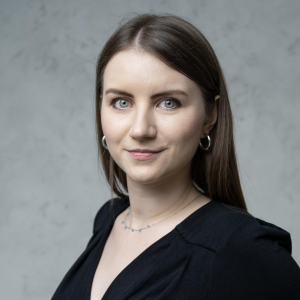Over the past few decades, Europe has seen large waves of migration from post-soviet countries in Europe and from other continents. Young people leave their homes in search of better lives in other countries, but it is not always that they build prosperous futures. Sometimes this happens due to lack of skills or the lack of policies fostering the integration of migrants into the productive society of the receiving countries. The Horizon 2020 MIMY project will examine the effectiveness of integration policies in a comparative and interdisciplinary manner.
The MIMY research project has set out to improve the situation of young migrants in Europe through a multi-level analysis of the related integration processes. Collecting qualitative and quantitative data and conducting case studies in various countries, the interdisciplinary consortium will analyse the social and economic effects of (successful or failed) integration in order to derive evidence-based policy recommendations. Over the next three years, the 12 European partners will receive EUR 3 million funding from the European Union’s Horizon 2020 Framework Programme.
Especially since 2015, migratory flows to Europe have driven EU member states to adopt different national strategies regarding integration efforts and policies. Moreover, in the context of an ageing population and a need for certain professional skills, migrants make an important economic contribution to these countries. Therefore, with young people representing a large proportion of migrants, societies need to find new ways to tackle the challenges arising from integration of young third-country nationals and to avoid social exclusion.
The MIMY project puts strong emphasis on:
- Synergies with other EU projects on migrant integration
- Research impact
- Societal impact.
Methodology
Interdisciplinary Research
Launched in February 2020, the EU-funded project MIMY addresses these issues by examining the effectiveness of integration policies in a comparative and interdisciplinary research endeavour. The 12 partners from 11 disciplines, such as sociology, cultural and political sciences, economics and psychology, will focus on the dynamic, open-ended process of integration across macro (EU migration policies), meso (regional economic and social systems) and micro (individual practices) level. Aiming to offer tailor-made, actionable policy recommendations, the multi-method approach will provide in-depth analyses of:
- the long-term socio-economic effects of successful and failed integration
- factors fostering or hindering integration processes of young migrants (considering the heterogeneity and diverse biographical backgrounds)
- diverse social actors and institutions supporting the agency of young migrants by further strengthening their resilience and resistance strategies.
The researchers will employ the following tools:
- narrative interviews with migrants from third countries; with the involvement of co-ethnic peer-researchers
- in-depth group interviews (IDIs) with young migrants from third countries
- focused group interviews (FGIs) with stakeholders
- delphi study with stakeholders and experts
Youth Participation
The experiences of young migrants, which have often been neglected in past examinations, will be put at the centre of the MIMY project. “Taking their needs and expectations into account, we want to contribute to the empowerment of this vulnerable group enabling them to become active citizens within an inclusive society”, said Professor Birte Nienaber from the University of Luxembourg, who coordinates the project. “Directly involving young migrants as peer researchers and through participatory research, we want to actually make their voices heard in the policymaking bubble.”
Directly involving young migrants as peer researchers and through participatory research, we want to actually make their voices heard in the policymaking bubble.
Professor Birte Nienaber, Consortium Leader
Project Consortium
The MIMY consortium comprises 12 European partners from Belgium, Germany, Hungary, Italy, Luxembourg, Norway, Poland, Romania, Sweden and the UK.
- Consortium Leader: University of Luxembourg, Prof. Birte Nienaber
- Coordinating Institution: Université du Luxembourg
- Academia de Studii Economice din Bucuresti, Romania
- Europese Confederatie Van Organisaties Voor Jeugdcentra ECYC Vereniging, Belgium
- EURICE – European Research and Project Office GmbH, Germany
- HAWK Hochschule für Angewandte Wissenschaft und Kunst Fachhochschule Hildesheim/Holzminden/Göttingen, Germany
- ILS – Institut für Landes- und Stadtentwicklungsforschung gGmbH, Germany
- Kozep-Europai Egyetem, Hungary
- Malmö Universitet, Sweden
- SWPS Uniwersytet Humanistycznospoleczny, Poland
- The University of Sheffield, United Kingdom
- Universitá Cattolica del Sacro Cuore, Italy
- Université du Luxembourg, Luxembourg
- Universitetet I Bergen, Norway
Application of results
The project has resulted in the following publications:
- Articles:
- Winogrodzka, D., Trąbka, A., & Pietrusińska, M. J. (2023). “It’s about mindset”. How do young migrants in Poland build their resilience? Journal of Ethnic and Migration Studies, 1–21 (https://doi.org/10.1080/1369183X.2023.2285715)
- Arendas, Z., Trąbka, A., Messing, V., Pietrusińska, M. J., & Winogrodzka, D. (2023). Agency of Migrant Youth in Hostile Sociopolitical Environments: Case Studies from Central Eastern Europe. Social Sciences. 12(4), 210. (https://doi.org/10.3390/socsci12040210)
- Blachnicka-Ciacek D., Trąbka A. (2022). “Football was the key”: the role of sports in facilitating migrants’ belonging and inclusion in Poland. Leisure Studies, DOI: 10.1080/02614367.2022.2088834 (https://www.tandfonline.com/doi/full/10.1080/02614367.2022.2088834).
- Reports:
- Trąbka, A., Pietrusińska, M. J., & Winogrodzka, D. in collaboration with J. Oliveira (2023). Responsibilisation of Young Migrants for Integration. Navigating Between Vulnerability and Resilience. MIMY Synthesis Report. Warsaw: SWPS University of Social Sciences and Humanities (dostępny m.in. na stronie projektu: https://mimy-project.eu/outcomes/public-deliverables/MIMY_870700_D8-1_Synthesis%20report_final.pdf).
- Pietrusińska, M.J., Winogrodzka, D., & Trąbka, A. in collaboration with J. Oliveira, & R. Catherine (2023). Researching Young Migrants in Vulnerable Conditions. Methodological and Ethical Guidelines Based on the MIMY Project. Warsaw: SWPS University of Social Sciences and Humanities (dostępny m.in. na stronie: https://mimy-project.eu/outcomes/public-deliverables/MIMY_870700_D8-3_Methodological-guidelines-and-manuals-for-replications-in-migration%20studies_final.pdf).
Reserch team

Blachnicka-Ciacek, Dominika
coordinator of the Polish Team
Specialization
Visual sociologist, researching relationships between people, spaces and memory in migration and forced migration contexts
First and last name
Dominika Blachnicka-Ciacek
Academic degree or title
Ph.D. / Lecturer
Email
This email address is being protected from spambots. You need JavaScript enabled to view it.
Role in the Department
[]
Role in the Research Center
[]
Ph.D. / Lecturer Dominika Blachnicka-CiacekVisual sociologist, researching relationships between people, spaces and memory in migration and forced migration contexts

Łużniak-Piecha, Magdalena
Specialization
psychologist, specializing in industrial and organizational psychology
First and last name
Magdalena Łużniak-Piecha
Academic degree or title
Ph.D. / Assistant Professor
Email
This email address is being protected from spambots. You need JavaScript enabled to view it.
Discipline
management-and-quality-studies
Role in the Faculty
{"funkcja-na-wydziale0":{"Funkcja":"","\u0141\u0105cznik":"","Nazwa w mianowniku":"Faculty of Social Sciences in Warsaw"}}
Role in the Department
{"funkcja-w-katedrze0":{"Funkcja":"","\u0141\u0105cznik":"","Nazwa w mianowniku":"Department of Management"}}
Role in the Institute
{"funkcja-w-instytucie0":{"Funkcja":"","\u0141\u0105cznik":"","Nazwa w mianowniku":"Institute of Social Sciences"}}
Role in the Research Center
{"funkcja-w-centrum0":{"Funkcja":"","\u0141\u0105cznik":"","Nazwa w mianowniku":"Youth Research Center"}}
Ph.D. / Assistant Professor Magdalena Łużniak-Piechapsychologist, specializing in industrial and organizational psychology

Pietrusińska, Marta
First and last name
Marta Pietrusińska
Academic degree or title
Ph.D.
Ph.D. Marta Pietrusińska

Winogrodzka, Dominika
Specialization
sociologist / social researcher
First and last name
Dominika Winogrodzka
Academic degree or title
M.A.
Email
This email address is being protected from spambots. You need JavaScript enabled to view it.
Role in the university
Researcher
Role in the Institute
{"funkcja-w-instytucie0":{"Funkcja":"","\u0141\u0105cznik":"","Nazwa w mianowniku":"Institute of Social Sciences"}}
Institute
Institute of Social Sciences
Role in the Department
[]
Role in the Research Center
[]
M.A. Dominika Winogrodzkasociologist / social researcher